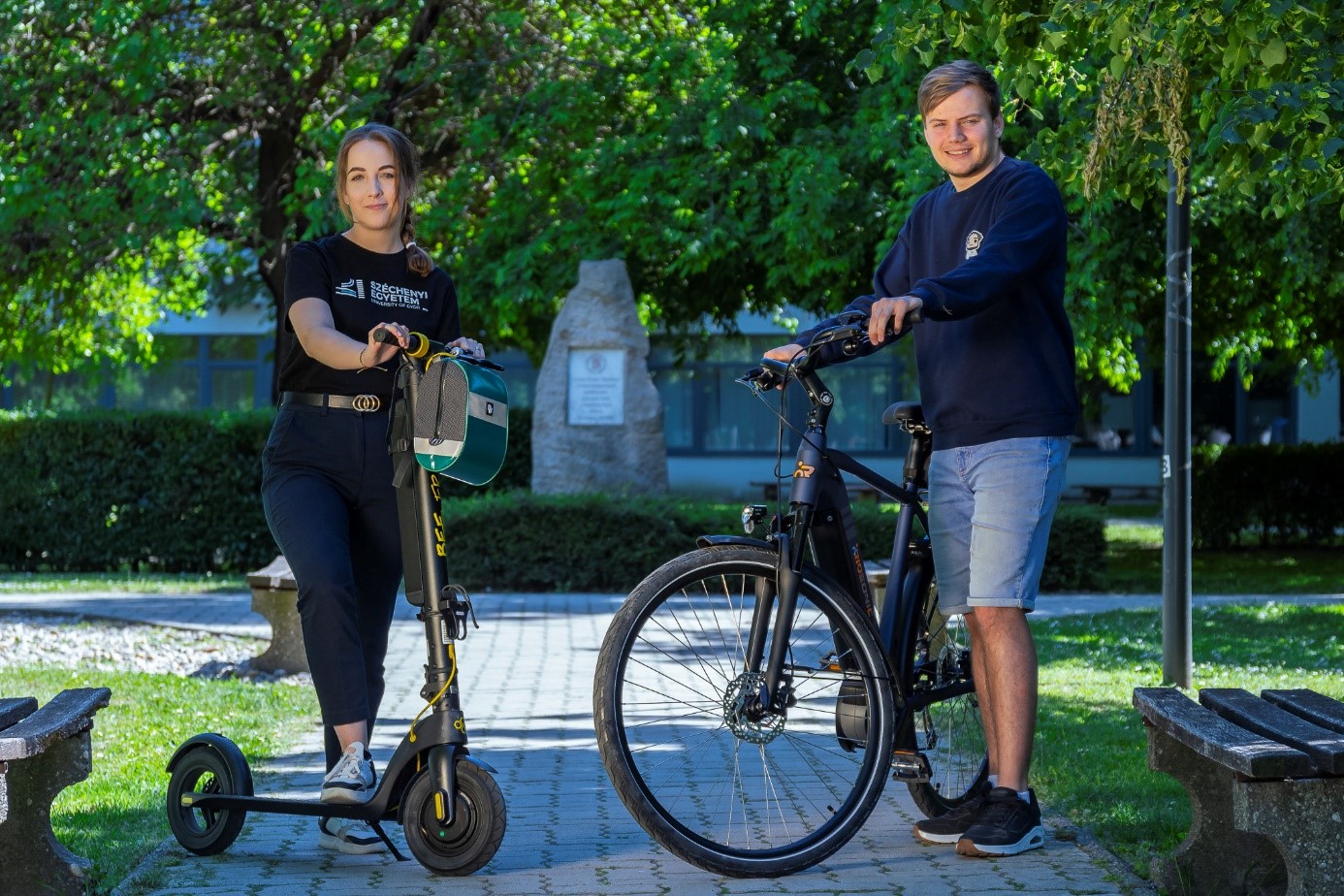Sustainability: Citizens of Széchenyi István University can commute with electric bikes and scooters
An initiative has been launched on a trial basis, whereby students and staff of SZE can use e-scooters and e-bikes free of charge, even for commuting to work. The sustainability and awareness-raising programme will offer this opportunity for five weeks at the institution, followed by a trial run at local companies.
“The strategic goal of the partnership between SZE and HUMDA, a member of the Széchenyi University Group, is to promote green transition and sustainability. In this endeavour, HUMDA plays a major role by supporting the formation of environmentally conscious attitudes, to which our institution contributes with its educational, scientific and innovative activities” - underlined Dr Bálint Filep, President of Széchenyi István University, in connection with the fact that a new programme is strengthening social awareness with the cooperation of the two parties. The main objective of the "Think, Try, Do - get around in everyday life without 4K" campaign is to promote alternative transport. The first opportunity to try out an electric bike and scooter took place at SZE.
"The initiative shows that we don't always have to drive everywhere, as there are real, cost-saving and environmentally friendly alternatives. Not to mention that during rush hours, transport can be more convenient and in many cases faster with the use of so-called micromobility devices," said Dr András Torma, Head of the Department of Applied Sustainability at the Institute. He added that the project, funded by the HUMDA Hungarian Green Mobility Development Agency Ltd, a member of the Széchenyi University Group, and supporting the goals of the Climate Friendly Hungary Decade programme, is a partnership between Medencebag LLC, Enviro Partner LLC and the university, and will enable participants to see how environmentally friendly transport can be integrated into their everyday lives without any financial outlay.

In the pilot programme, electric scooters and bicycles can be rented free of charge (Photo: Máté Dudás)
“Today, many people still don't choose these devices because they are expensive, storage can be a problem, they need to be charged, and theft is also a real threat. The pilot scheme is looking at the feasibility of electric vehicles being owned by employers rather than individuals, and employers allowing their employees to use them as a benefit. This is both a shared responsibility for a more livable environment and can increase employee satisfaction and ultimately loyalty to the company,” he said.
The experiment started at Széchenyi István University and will run for five weeks. During this time, experts will gather the experience of 150 test runs to see if the outlined scheme can work in the long term. “In practice, it works by asking staff who want to use one of the four e-bikes and four e-rollers to fill in an entry questionnaire. This will assess their prior opinion and knowledge of micromobility. After use, they will be able to share their actual experiences with us by answering a new set of questions. The devices also come with special bags to make it easier to carry personal belongings, and we will ask for your opinion on this as well,” he said.
The head of the department said that the university will not only train the users and evaluate the entry and exit tests, but will also produce a summary study at the end of the project, which will contain the experiences of the project as a whole. Staff at the institution will be able to take the tools away for 24 hours a day during the week and for the whole weekend on Fridays. After five weeks, the vehicles will be transferred from the university to different companies, organised by Enviro Partner Ltd, so that the experts can collect examples from as many differesnt types of organisations as possible.
“The experience so far shows that colleagues are interested, we receive a lot of practical questions, but a comprehensive picture and a solid conclusion can be made after the programme has ended. We hope that this opportunity will be attractive for employers and employees alike, as it will allow participants to contribute to sustainability, which is also a priority research area for our university,” concluded Dr András Torma.











